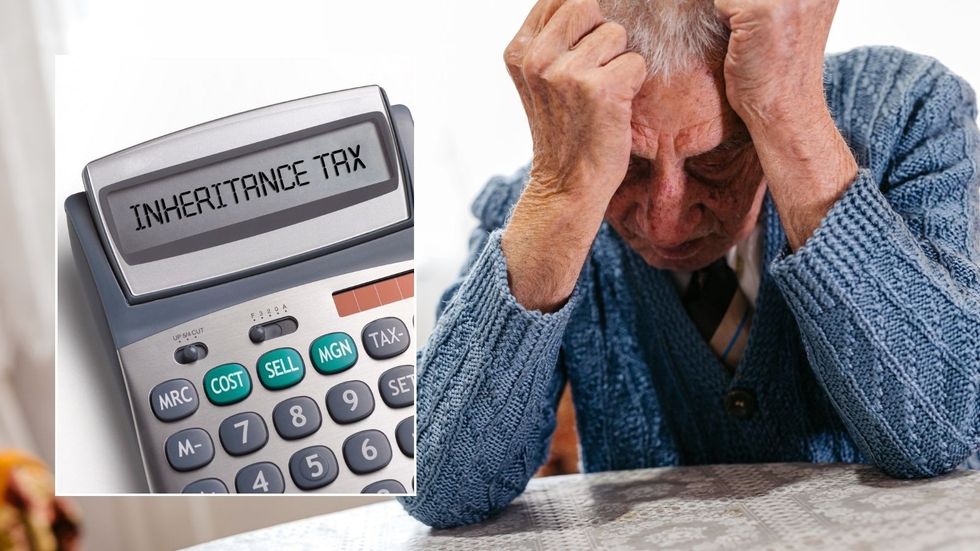Kieran Mullan MP on farmers protest inheritance tax and Labour’s economic impact
GB NEWS
Inheritance tax is a levy on the estates of those who have died
Don't Miss
Most Read
Trending on GB News
Inheritance tax (IHT) receipts have reached a record-breaking £8.2billion for the financial year 2024-2025, according to figures released today by HM Revenue and Customs (HMRC).
This represents a significant increase of £800million compared to the previous year, with analysts citing the impact of fiscal drag as being responsible for this hike.
Fiscal drag occurs when incomes or inflation rise during a period of time when tax thresholds are frozen, resulting in people being pulled into higher brackets.
The 10.8 per cent rise in IHT receipts continues the upward trend in inheritance tax collection that has been observed in recent years.

The Chancellor could continue with further IHT reform, analysts warn
GETTY
Analysts suggest this pattern is unlikely to change in the foreseeable future due to several factors, including frozen thresholds and upcoming changes to pension fund treatment.
The record figures come amid ongoing financial market turbulence that may actually provide some relief opportunities for certain estates.
Ian Dyall, the head of estate planning at wealth management firm Evelyn Partners, outlined what HMRC's latest figures mean for taxpayers.
"The inheritance tax take for the Treasury has notched up another record financial year. That's a trend that is unlikely to change as long as nil-rate bands remain frozen, which is currently until at least 2030," he said.
Do you have a money story you’d like to share? Get in touch by emailing money@gbnews.uk.
 New research suggests millions of Britons are "unware" of changes to inheritance tax rules which will impact pensions GETTY
New research suggests millions of Britons are "unware" of changes to inheritance tax rules which will impact pensions GETTY Dyall explained that even during periods of market volatility, long-term increases in asset values typically push more estates over the IHT thresholds.
He also warned that extended financial market turmoil and a possible recession could prompt the Treasury to seek additional revenue sources.
"The Chancellor might not be done with IHT reform quite yet," Dyall cautioned.
Several upcoming changes are set to further boost inheritance tax revenues in the coming years.
Dyall highlighted that "the inclusion of unspent pension funds in IHT liabilities from April 2027 along with the dilution of agricultural and business reliefs next year - will give that trend a big leg up."
These changes represent significant shifts in how certain assets are treated for inheritance tax purposes.
LATEST DEVELOPMENTS:
 Farmers have been protesting against the inheritance tax raidPA
Farmers have been protesting against the inheritance tax raidPADespite the record tax take, recent market turbulence could offer a silver lining for some families in the form of an inheritance tax rebate.
"If their estate was valued on death, say, six months ago and the IHT bill settled on the basis of that, then by the time probate is granted and assets have been liquidated, it could be that the total value of the estate has dropped," Dyall explained.
He advised that executors should compare the estate's value at distribution with the estimate provided to HMRC when calculating the IHT liability.
"It could be that the estate is due some money back from HMRC," he noted.








